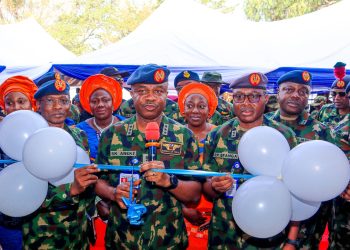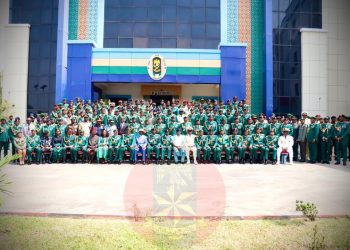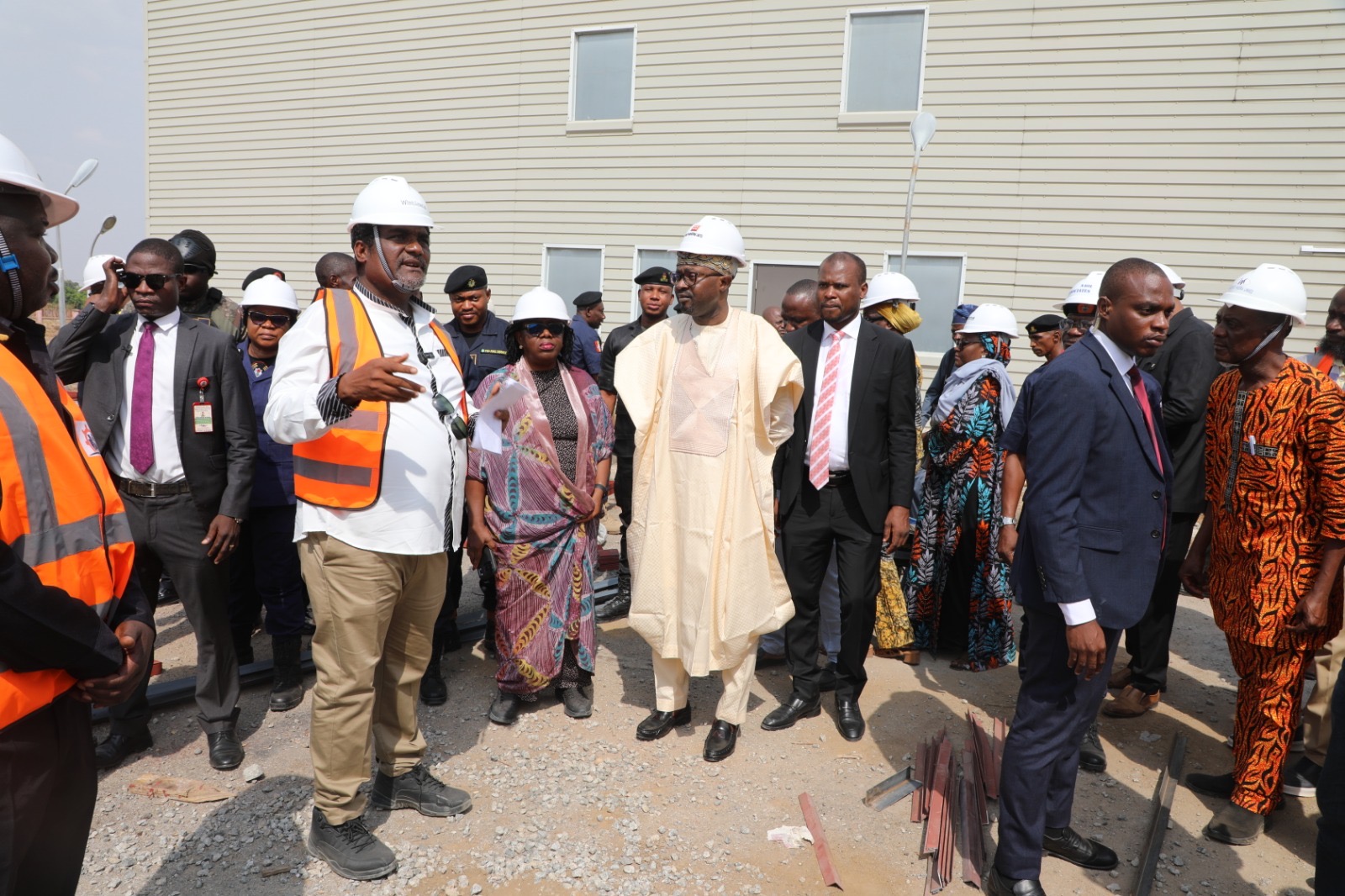By Nkechi Eze
The National Defence College (NDC) on Monday hosted the Graduation Lecture for Course 33 in Abuja, featuring a stirring and visionary address by former President of the Republic of Ghana, His Excellency Nana Addo Dankwa Akufo-Addo, who underscored the urgent need for Africa to strengthen its governance institutions as a prerequisite for peace, security and sustainable development.
The event, which drew an audience of senior military officers, members of the diplomatic corps, heads of security agencies, defence attachés, academics and top government officials, began with welcome remarks by the Honourable Minister of Defence, Alhaji Mohammed Badaru, who described the lecture as a cornerstone of the NDC tradition and an important opportunity for participants to interact with eminent African statesmen. “The National Defence College tradition of inviting eminent statesmen and leaders to engage participants on issues that shape our nation and our continent is one I deeply admire,” the Minister said. “This practice enriches the graduating participants with strategic insights and leaves a lasting impression on their journey as future leaders.”
The Minister noted that the theme of the lecture, “Strengthening Institutions for Good Governance in Africa”, strikes at the very core of the continent’s long-term progress and stability. “When institutions are weak, nations falter. When institutions are strong, nations endure, economies grow, and societies thrive,” he declared. “Strong nations are not built on strong individuals, but on resilient and accountable institutions.”
Alhaji Badaru reaffirmed Nigeria’s commitment to institutional reforms under President Bola Ahmed Tinubu’s Renewed Hope Agenda, stating that “leadership appointments, reforms and new frameworks are deliberately designed to promote accountability, professionalism and effective coordination.” He explained that the Ministry of Defence is fully aligned with the President’s mission and is focused on “building systems that will outlast any administration and secure stability for future generations.”
Welcoming the guest lecturer, the Commandant of the National Defence College, Rear Admiral James Okosun, paid glowing tribute to Nana Akufo-Addo, describing him as “a leader who served with distinction and whose commitment to strengthening democratic institutions across the continent is widely respected.” The Commandant said, “It is most fitting that we welcome Your Excellency today, at a time when Nigeria and many other African countries are confronting severe internal security challenges.” He observed that insurgency, militancy, secessionist tensions, cattle rustling and kidnapping all reflect the fragility of governance institutions across the continent. “Without resilient institutions,” he warned, “there can be no enduring security or sustainable development.”
In his lecture, Nana Akufo-Addo drew from his personal experience and offered an incisive analysis of Africa’s governance challenges. He warned that the continent cannot hope to achieve long-term peace and development if its institutions remain weak or easily manipulated. “We cannot build progress on the strength of individuals alone,” he said. “It is institutions that guarantee accountability. It is institutions that protect liberty and prevent the excesses of power.” He noted that while many African countries have made gains in democratic governance and institutional reforms, “there is still much work to be done, especially in protecting the rule of law, consolidating democratic values and building administrative systems that serve the people.”
Turning to the participants of Course 33, the former Ghanaian President delivered a strong message of responsibility and service. “Leadership is not an exercise in personal glory,” he said. “Leadership is a trust. It is a responsibility to leave behind systems stronger than you met them. I urge you to recognise that every office you will hold presents an opportunity to strengthen the institutions of our continent.”
The audience listened attentively as Akufo-Addo reminded them that Africa’s future depends on the decisions made by public servants and security leaders. “If we want a peaceful continent, we must build institutions that command respect. If we want prosperity, we must build institutions that are transparent, fair and inclusive,” he stated.
In a vote of thanks, the Deputy Commandant and Director of Studies, Major General K.O. Okande, expressed deep appreciation to the guest lecturer for sharing his invaluable experience, describing the lecture as “most thought-provoking, enlightening and profoundly relevant to the security and development aspirations of our continent.”
“Your Excellency, today you have once again proven that you are a man of many parts, a visionary leader, a scholar and a partner in Africa’s renewal.” He said.
Major General Okande also thanked the Honourable Minister of Defence for his presence and for the confidence reposed in the College, adding, “We assure you, sir, that we will continue to double our efforts so that this confidence is not displaced.” He further acknowledged the Chief of Defence Staff, Service Chiefs, Inspector General of Police, members of the diplomatic corps and the media for their continued support to the College. “You have always responded whenever we call, and for that we remain very grateful,” he said.
After eleven months of rigorous academic and strategic training, participants of Course 33 are now set to assume higher responsibilities in their respective services, ministries and agencies. As the ceremony drew to a close, the atmosphere at the College remained solemn, yet celebratory, a testament to the significance of the occasion and the weight of the charge delivered to Africa’s next generation of strategic leaders.
















